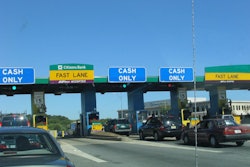You can’t prevent everything. As long as there are planes, cars, trains and other forms of transportation, you’ll hear about crashes and wrecks. But at what point do these machines’ safety records cross the line from being a fluke accident to becoming a serious concern?
After a train carrying crude oil in Lac-Megantic in Quebec, Canada, exploded and killed 47 people, the United States Federal Railroad Administration (FRA) wrote a letter to the American Petroleum Institute stating they are investigating the transportation of crude oil by rail.
(I guess it doesn’t help that the Canadian Pacific Railroad rejected the government’s demand for them to pay for the cleanup, reported The Huffington Post. I’m sure BP could offer some suggestions here.)
I agree they should look into the accident and figure out the cause so similar situations can be prevented in the future. But is it time to throw in the towel because of one specific accident?
I’ve seen and heard of several deadly accidents that have made me think twice about sitting behind the wheel. And with the recent UPS plane crash just 25 miles from my house, I’m not thrilled about flying for my upcoming trips.
Anytime a large, powerful vehicle or machine is involved, bad things can happen. That’s why it’s important to learn from past mistakes and move forward – not call it quits because of a single occurrence.
Did we stop using boats because of the Titanic? No, we learned from this occurrence and worked to make sure it didn’t happen again.
So to answer my initial question, I’m not sure what the exact number is for deciding when something is so dangerous that we stop using it altogether. All I know is, it ain’t one.








